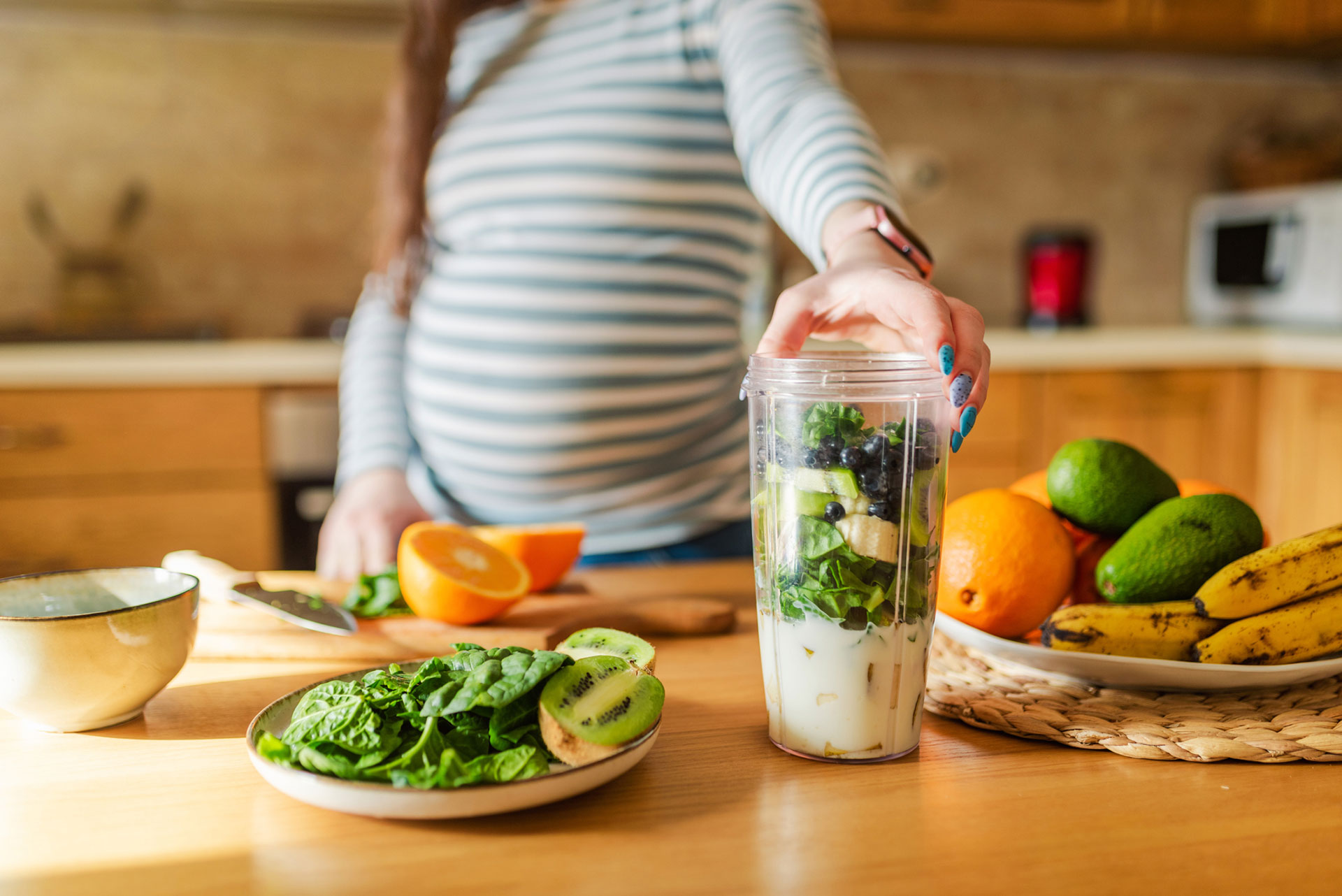“5 Reasons You Might Not Be Getting Pregnant” myMindBodyBaby
If you have asked yourself this question, you are not alone.
As a young (and uninformed) adult, I was terrified at the thought of getting pregnant. Not only did I not fully understand my body, but I was certain sperm would leap from a condom and impregnate me, so doubling down birth control was my only safeguard. Little did I know that my chances of pregnancy were quite slim outside of my ovulation window. So I spent much of my 20’s in panic mode at the mere thought of these magically flying sperm.
Fast-forward into my 30’s. Newly married and ready to start a family and nada…where were the leaping sperm when I actually needed them? Two long years and not so much as a hint of the illustrious second pink line.
It was only then that I started to finally learn more about my body, ovulation, and began to research different reasons why I might not be getting pregnant.
When is it a problem?
Current guidelines suggest that women who are under 35 and have been trying to conceive for more than one year, or women who are over 35 and have been trying for more than six months can and should consider seeking the help of a Reproductive specialist to understand what might be the issue. Early investigations usually include:
- diagnostic testing to determine if a disease process (like endometriosis) is a factor
- male testing to determine if motility, morphology, and count of the sperm are in a healthy range, – a physical and testing to investigate if the female partner’s reproductive organs are functioning well
- monitoring and timing menstrual cycles to determine ovulation consistency and frequency
Depending on the outcome of this initial testing, options such as medication or more involved treatments like Intrauterine Insemination (IUI) or In Vitro Fertilization (IVF) may be recommended. For more on what to expect during fertility investigations check out this article.
5 reasons why you might not be getting pregnant
Aside from some of the more obvious reasons women fail to conceive on any given month such as age (AMH declines as you get older), improper timing of intercourse, and anovulation (not ovulating), there are quite a few other variables that will affect the chance of conception.
It’s not you, it’s him
The primary focus when it comes to fertility is often on women. And while 1/3 of the time infertility or delayed conception might be due to an issue with a woman, 1/3 of the time it can also be male-factor. (BTW, in the other third of cases there are issues with both partners).
One particular factor that can influence male fertility is body composition. Studies are showing that male obesity can increase the risk of infertility. One particular study showed lower sperm motility in obese men, while another found higher levels of abnormal morphology in men who were obese versus their counterparts with a lower BMI.
This Epidemiological study showed that just a weight gain of just 10% decreased male fertility by 10%. That is a big deal and luckily one that generally can be modified with lifestyle intervention.
Outside of BMI, there are other male-factor variables that could be contributing to delayed conception
- Functional complications like undescended testis or a Varicocele (see Lyndsey’s story for more details on this)
- Overexposure to environmental factors such as pesticides or other chemicals, overexposure to heat like saunas or hot tubs, certain medications like those that treat depression, and prolonged exposure to alcohol, marijuana, and cigarette smoke (more on environmental toxins here)
- Chemotherapy or radiation therapy to treat cancers
- Delivery issues that include genetic diseases, premature ejaculation, damage from injuries or physical blockages
Silent health-related complications
You might find it interesting to note that there are a few known conditions that CAN affect fertility which you might not even know you have.
Enter Endometriosis and Polycystic Ovarian Syndrome (PCOS).
According to studies, both of these conditions could affect a woman’s chances of conceiving, yet because the symptoms can be masked as seemingly innocuous, women don’t always connect the symptoms to the condition. For example, a symptom of endometriosis for some is discomfort or pain during a bowel movement, yet it could also be related to constipation.
“Typically, endometriosis causes pain and infertility, although 20–25% of patients are asymptomatic.”
PCOS is another sometimes silent condition that often goes undiagnosed for long periods of time. It also happens to be one of the leading causes of infertility. Common symptoms include cysts in the ovaries, high androgen (male hormone) levels, and irregular periods. Unfortunately, because these symptoms aren’t necessarily connected to pain or discomfort, they can get missed and therefore not taken into account when it comes to delayed conception.

Tip: If you are have been diagnosed with PCOS, check out our researched-based Fitness and Nutrition guide. This PCOS-specific program will walk you through what to eat and how to move to best manage your PCOS symptoms and support your body towards conception.
46]
Fighting Saber-Tooth Tigers
To our cavemen ancestors’ saber-tooth tigers were the stuff nightmares were made of. Today, these tigers are masquerading around as demanding bosses, overwhelming family, and social obligations, and infertility.
Stress today has been shown to have a very real and quantifiable effect on female fertility. And while the cause doesn’t seem to matter, the lasting consequences are real.
“Women with high levels of stress were found to have decreased fecundability, 12.8% versus 16.5% in women with lower stress levels…”
Why?
There are numerous studies that have looked at the relationship between stress and fertility. One such study took 501 women and looked at α-amylase, a biomarker of stress. Levels of α-amylase were shown to be correlated to the time it took a woman to become pregnant. In fact, “Women in the highest quartile of α-amylase levels at baseline were twice as likely to subsequently experience infertility.”
Cortisol is another hormone connected to the stress response. In this study, 135 women undergoing IVF had their cortisol levels tested, and findings showed a correlation between pregnancy rates and cortisol levels.
Getting stress under control to support your chances of conception is important. Easier said than done, right? Consider identifying the areas of your life that are causing the most stress. Don’t try to tackle them all right away (that could cause more stress!) – instead, focus on one thing you can do a week (or a month) to change the circumstances. Is there too much on your plate at work? Figure out who you can ask to support you, and consider having a heart-to-heart with your boss – perhaps the two of you can brainstorm how to create a better balance. Are too many social obligations wreaking havoc on your week? Maybe now is the time to spend more downtime at home. Read more, get in another night of yoga, go to bed earlier. All your little efforts will start to add up and hopefully, in time you will feel less stressed.

If you need a little more help managing stress you can check out this free tool here:
25]
You are what you eat
Although some of us would prefer not to believe this, what you eat CAN have an impact on your fertility. Specifically for those who struggle with anovulation.
A study by Chavarro et al published a “fertility diet” based within the Nurses’ Health Study II population. This study found that women who followed the fertility diet had a 66% lowered risk of ovulatory infertility and 27% lower risk of infertility.
This diet is characterized by:
- lower intake of trans fats
- more monounsaturated fats
- lower intake of animal proteins with greater intake of plant proteins
- high fiber foods
- low glycemic carbohydrates
- high-fat dairy vs low fat
- higher multivitamin use
- higher plant-based iron intake
Now we know the parameters of what to eat, perhaps you are wondering how to actually do this? Lucky for you we have compiled all the research and put together a complete guide to help you eat and move (also research-based) to best support your goal of pregnancy. Check it out here!

Getting sweaty
Studies have shown that women who incorporate regular, moderate exercise show increased fertility. That same research also shows that intense exercise over 5 hours per week can have a negative impact on fertility. Some women report that when they are training for an upcoming event or sport that they notice their period is disrupted. In fact, some women report having no period at all during intense training. On the other hand, excess body fat can also impact your menstrual cycle, and adding in moderate exercise may be beneficial to supporting your fertility.

Use this FREE workout to add some fertility-friendly exercise into your schedule!
31]
Wrapping it up
As we have learned, there are many reasons why you may be having a hard time conceiving. If you have been trying for longer than 6 months (over 35 years old) or over a year (under 35 years old) we recommend booking an appointment with your primary healthcare provider to discuss getting a referral to a specialist. For more on what to expect if you go down this road check out this article. In the meantime you can try implementing the lifestyle modifications we discussed above and maybe your two pink lines are just around the corner!





